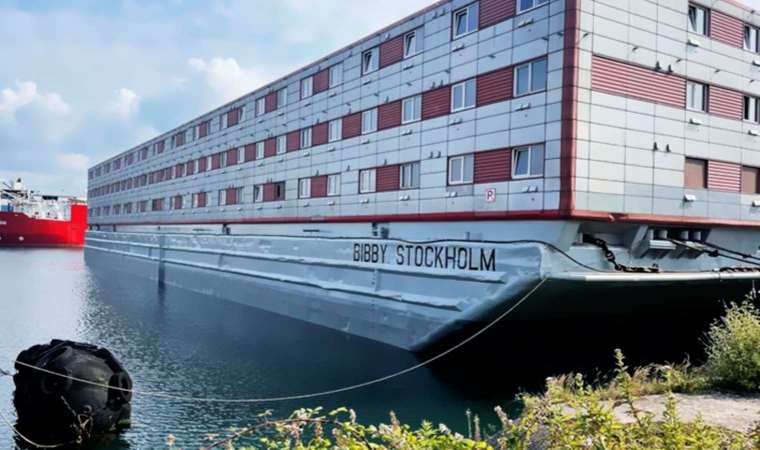Opinion: Britain's 'Floating Prison' Raises Concerns Over Immigration Policy
Elcin Poyrazlar

The United Kingdom's immigration strategy under the Conservative government has once more ignited controversy. British Prime Minister Rishi Sunak's campaign aimed at curbing migrant arrivals through small boats has backfired, as a hazardous bacterium was discovered aboard the Bibby Stockholm, a vessel characterized as a "floating prison" for asylum seekers.
The Bibby Stockholm stands as a pivotal component of the British government's strategy to discourage asylum seekers from crossing the English Channel in small boats—a practice vehemently opposed by human rights and refugee organizations.
Docked in the British port of Dorset, the ship was initially designed to accommodate asylum seekers for up to 18 months, conceived as a temporary response to the nation's sluggish refugee policy. Beyond concerns regarding fire hazards on board and the legality of such an approach, these organizations contend that the ship embodies a prison-like environment, labelling the scheme as "cruel and inhumane".
NO STEP BACK
The Sunak administration contends that the cost of housing 51,000 asylum seekers in hotels across the country amounts to a staggering £6 million daily burden on taxpayers. This endeavour aims to mitigate migrant-related expenditures.
However, following the embarkation of 39 asylum seekers last week, the operation faced an abrupt halt due to the detection of legionella bacteria—a causative agent of pneumonia—in the ship's tap water.
Though officials assert that no cases of the disease have emerged, and despite implementing necessary precautions, the plan remains intact to accommodate roughly 500 male asylum seekers aged between 18 and 65 on the ship, pending the outcome of their application reviews.
An extensive fleet of up to 500 vessels is poised to serve as accommodations for asylum seekers awaiting processing in the UK. The number of asylum seekers arriving in the UK through the English Channel has surpassed 100,000 since 2018. Among those arriving via small boats, 45 per cent apply for asylum within the country. In 2022, Albanians, Afghans, Iranians, Iraqis, and Syrians sought asylum in the UK, with figures excluding nearly two hundred thousand Ukrainian asylum seekers who arrived after Russia invaded Ukraine.
AGGRESSIVE STRATEGY
In contrast, the UK's contentious plan to repatriate "illegal" migrants to Rwanda received parliamentary approval last month, an initiative condemned by the United Nations as a "violation of international law".
Despite parliamentary endorsement, legal hurdles have so far prevented any migrant from being deported to Rwanda. In an additional move last week, the British government unveiled an accord with Turkey to tighten control over refugee arrivals across the Mediterranean.
This pact encompasses collaborative police operations and the establishment of a "new Turkish police headquarters". As the Conservative Party seeks to consolidate its power post-Brexit, it continues to wield an assertive immigration strategy.

